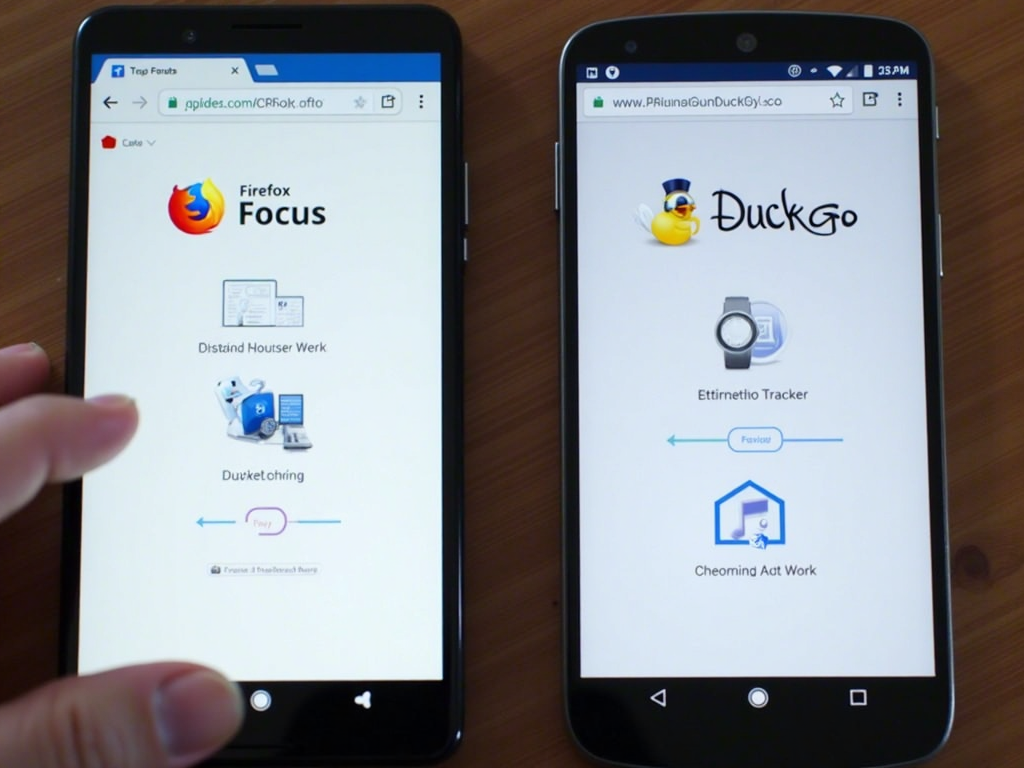The Future of Online Privacy: Trends to Watch
Overview
In an era where our lives are increasingly digital, online privacy has become a critical concern. From social media to online banking, our personal information is constantly at risk. This article delves into the future of online privacy, highlighting key trends to watch, the importance of safeguarding your data, and practical tools like VPNs and privacy-focused browsers. Whether you're a casual internet user or a tech enthusiast, understanding these trends will help you stay ahead in the digital age.

The Importance of Online Privacy in the Digital Age
Online privacy is more than just a buzzword; it's a fundamental right. Every day, we share personal information online, from our location to our shopping habits. This data can be used to track our behavior, target us with ads, or even steal our identity. The digital age has made it easier for companies and hackers to access our information, making privacy protection essential.
Consider this: a study by the Pew Research Center found that 79% of Americans are concerned about how companies use their data. Yet, many of us don't take the necessary steps to protect ourselves. This is where understanding the importance of online privacy comes in. By being aware of the risks and taking proactive measures, we can safeguard our personal information and maintain control over our digital footprint.
Why Online Privacy Matters
- Identity Theft: Cybercriminals can use your personal information to commit fraud.
- Data Breaches: Companies may not always protect your data as they should.
- Surveillance: Governments and corporations can track your online activities.
- Personal Freedom: Privacy allows you to express yourself without fear of judgment or repercussions.

How to Set Up a VPN for Maximum Privacy
One of the most effective tools for protecting your online privacy is a Virtual Private Network (VPN). A VPN encrypts your internet connection, making it difficult for anyone to intercept your data. Here's how to set up a VPN for maximum privacy:
- Choose a Reputable VPN Provider: Look for providers with a no-logs policy and strong encryption standards. For example, NordVPN and ExpressVPN are well-regarded in the industry.
- Download and Install the VPN App: Most providers offer apps for various devices, including smartphones and laptops.
- Connect to a Secure Server: Select a server in a privacy-friendly country, such as Switzerland or Iceland.
- Enable Kill Switch: This feature ensures your internet connection is cut if the VPN drops, preventing data leaks.
- Use Split Tunneling: This allows you to route some traffic through the VPN while other traffic accesses the internet directly, balancing privacy and speed.
For more detailed guidance, check out this comprehensive VPN setup guide from PrivacyTools.io.

Firefox Focus vs DuckDuckGo: Which Mobile Browser Is More Private?
When it comes to mobile browsing, privacy is a top concern. Two popular options are Firefox Focus and DuckDuckGo. Both browsers prioritize user privacy, but they have different features and approaches.
Firefox Focus: - Automatically blocks trackers and ads. - Offers a simple, one-tap browsing experience. - Deletes browsing history and cookies upon closing.
DuckDuckGo: - Uses a privacy-focused search engine. - Provides a privacy grade for websites. - Offers a 'Fire' button to clear all tabs and data instantly.
While both browsers are excellent for privacy, Firefox Focus is ideal for users who want a minimalist browsing experience with automatic privacy features. DuckDuckGo, on the other hand, is better for those who want more control over their privacy settings and a built-in search engine that doesn't track them.
For a deeper dive into browser privacy, see this comparison of privacy-focused browsers by the Electronic Frontier Foundation.

Trends to Watch in Online Privacy
As technology evolves, so do the threats to our online privacy. Here are some key trends to watch:
- Increased Use of Encryption: More websites and services are adopting end-to-end encryption to protect user data.
- Rise of Privacy-Focused Tools: Tools like VPNs, encrypted messaging apps, and privacy-focused browsers are becoming mainstream.
- Regulatory Changes: Governments are enacting stricter privacy laws, such as the GDPR in Europe and the CCPA in California.
- AI and Privacy: Artificial intelligence is being used to both protect and exploit personal data, making it a double-edged sword.
- Decentralized Internet: Technologies like blockchain are paving the way for a more decentralized, privacy-centric internet.
These trends indicate a growing awareness of online privacy issues and a shift towards more secure digital practices. Staying informed about these developments is crucial for protecting your personal information.

Summary
Online privacy is a critical issue in the digital age, with far-reaching implications for our personal and professional lives. By understanding the importance of online privacy, utilizing tools like VPNs and privacy-focused browsers, and staying informed about emerging trends, we can take control of our digital footprint. Remember, protecting your privacy is not just about avoiding risks; it's about empowering yourself in an increasingly connected world.